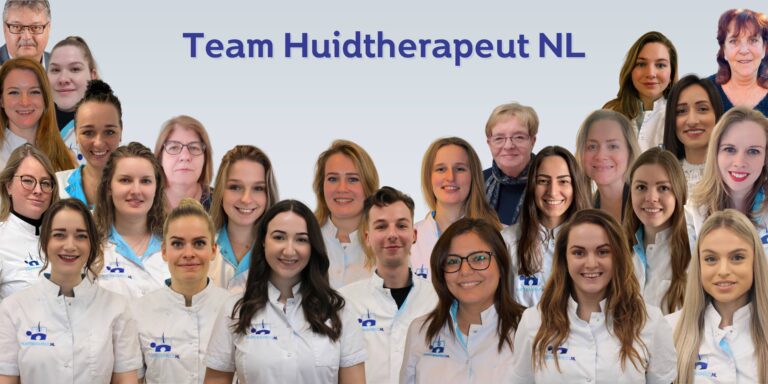Pigment is a dye also called melanin. It gives color to your hair, the iris of your eye and your skin. At the skin therapist, patients often come with complaints of dark (hyper) or lighter (hypo) pigmentations.
Lentigo (age spot)
A lentigo is a very common and benign brown-colored skin disorder that occurs in people from middle to older age. The lentigo, also known as age spot or liver spot, mainly occurs on the face and on the backs of hands in people with a light skin type who are exposed to a lot of sunlight. In some cases, a lentigo can develop malignantly (skin cancer). In that case, the shape and color of the spots will become more irregular. Treatment is then necessary. So go to the doctor if a spot changes in size or color or if it causes complaints.
Melasma (Maternity mask)
Melasma is a benign facial brown discoloration in women who are pregnant or taking the pill. Melasma, also known as a pregnancy mask, mainly occurs on the forehead, cheekbones, upper lip and chin. It is an innocent skin defect that often disappears after delivery. Treatment is not necessary, but could include bleaching creams, chemical peels, or laser therapy. Once a woman has had melasma, it is likely that it may develop again under the influence of pregnancy, pill use or sunlight. It is important to continue to protect the skin from the sun with a high sun protection factor.
Post-inflammatory hyperpigmentations (PIH)
PIH is a benign red to brown discoloration of the skin in places where inflammation has occurred, such as acne or eczema. People with dark skin type are more likely to develop PIH. After the inflammation has disappeared, the discoloration can disappear very slowly, but this is not always the case. PIH of dark skin is more difficult to treat because of the increased risk of pigment shifts in the surrounding skin.
Vitiligo
Vitiligo is a harmless whitening of skin and hair, especially on the face, hands and pubic area. Due to the disappearance of pigment cells in the skin, skin and hair lose their color. Vitiligo is a family autoimmune disease that can develop in people of any age or skin color. The immune system attacks the body’s own tissues. Treatment is not necessary and often does not give a full recovery. Examples of treatment are hormone creams (corticosteroids), light therapy (PUVA and UVB), skin grafts or camouflage. Good sun protection is necessary due to the lack of pigment in the skin.
Nevus (birthmark)
A nevus is a benign light to dark colored (sometimes lofty) spot on the skin. Naevi, also known as birthmarks, can be present from birth, but most develop between the ages of 3 and 40. Factors that may affect the development of a nevus are hereditary predisposition and childhood sunburns. In some cases, a nevus can develop malignantly into a melanoma (skin cancer), the shape and color of the nevus become more erratic. Treatment is then necessary.
Treatments
Lentigo (age spot)
The skin therapist can treat these age spots with laser therapy, for example, but also with microdermabrasion, cryotherapy and chemical peels beautiful results are achieved.
Melasma (Maternity mask)
If a melasma does not disappear gradually, or does not disappear quickly enough, treatment from the skin therapist may be helpful. The skin therapist can reduce and / or camouflage the pigment present by means of laser, microdermabrasion, chemical peels or camouflage.
Post-inflammatory hyperpigmentations (PIH)
The skin therapist can offer a solution when treating these disturbing pigmentation spots. Treatment can be done by means of camouflage therapy, chemical peels or laser therapy. Daily sun protection is very important in this form of hyperpigmentation.
Vitiligo
The skin therapist will often recommend camouflage therapy using very good covering camouflage cream.
Nevus (birthmark)
Skin therapists only treat benign moles on referral from a general practitioner or medical specialist and can apply coagulation.




